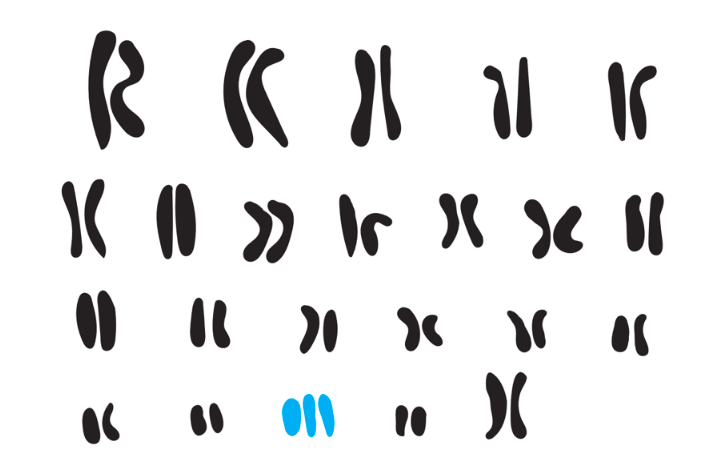Pro-Choice not Pro-Choosing: Down Syndrome in Iceland
Last week I read something horrifying: 99.9 percent of fetuses diagnosed with Down Syndrome are aborted in Iceland.
Yes, I am a strong believer in pro-choice ideals, and that women should have the right to choose if they have an abortion or not. But this is treading a very thin line — the line of choosing to have an abortion or choosing traits.
Iceland, like many other European countries, is crossing the line between health and eugenics. Doctors in Iceland are rumored to urge people who are carrying a fetus showing symptoms of any genetic diseases to abort the fetus, according to patients at Landspitali University Hospital in Reykjavik.
Though the tests which determine mental disabilities in fetuses are optional, doctors in Europe “strongly encourage” expecting mothers to take them. Over 85 percent of people in Iceland take these tests, despite the possibility of risks — including harming both the mother and the fetus and miscarriage. They can determine the likeliness of the baby being born with Down Syndrome, as well as other disabilities, by a combination of factors: the mother’s age, blood samples, size of the fetus’ neck, and samples from the placenta and amniotic fluid. Even with those tests, there is still a chance of false-positive results. A 15 percent chance.
Utah introduced a bill that would make it illegal for doctors to perform abortions for the sole reason of a fetal diagnosis of Down Syndrome. Conservative lawmakers in Utah know that this will not be put in practice. They understand that it will be shut down due to courts based on the Roe v. Wade ruling, and that many places — i.e. Planned Parenthood — do not ask the reasoning behind getting an abortion.
“It is a statement bill,” said State Rep. Karianne Lisonbee at a hearing. “Utah’s message to the world [is that] we will not tolerate discrimination.”
I disagree with almost every law that limits or attempts to limit reproductive rights — except this one. I believe strongly in the right to have an abortion. But like representatives in Utah, I do not believe people should be able to have an abortion on the sole basis of a fetal diagnosis of Down Syndrome. The debate goes from pro-choice — the choice of having an abortion or to not — to pro choosing — choosing what child you have.
I am not naive. I understand there are many struggles that families that have children with Down must navigate, but where is the line drawn? If there are other factors that make the expecting mother want to have an abortion, the moral issues become a lot more minute. I am well aware of the possible low quality of life people with Down Syndrome may have, but they deserve a quality of life regardless of this possibility.
People argue that by aborting a child they will eradicate Down Syndrome, which they are successfully doing in Iceland. However, Down Syndrome is not a hereditary disease, meaning that even by getting rid of a case, the likeliness of the next case is the same.
When speaking with Community High students, they are shocked by the high percentage of abortions in Iceland.
“That’s awful.”
“Truly disgusting.”
“I know people with Down Syndrome, there were two kids in my middle school.”
“At least we don’t do that here – ”
But, we do. The abortion rate for fetuses that test positive for Down Syndrome is 68 percent in the United States.
I have said it time and time again: I believe in the right to have an abortion. I believe in pro-choice values. But, I do not believe in the right to choose traits.
I believe Iceland has crossed the line of eugenics, and the United States is nearing it; this Utah bill is sending a message that crossing this line is not okay, and it never will be.
Sources:
https://www.cbsnews.com/news/down-syndrome-iceland/
https://www.mayoclinic.org/diseases-conditions/down-syndrome/diagnosis-treatment/drc-20355983

Cammi is in her fourth year on staff and is a senior at Community. This is her second year making up 1/4 of the print editor-in-chief team. When not working on The Communicator, she can be found playing golf and basketball for Skyline, lawyering at Mock Trial, singing camp songs off key at Camp Al-Gon-Quian or climbing trees. Cammi’s favorite part of journalism is when an interviewee says something special or powerful out of the blue. Two averagely fun facts about Cammi are that 1 ) she is scared of lightning but loves rain and 2) her favorite shape is a triangle.









